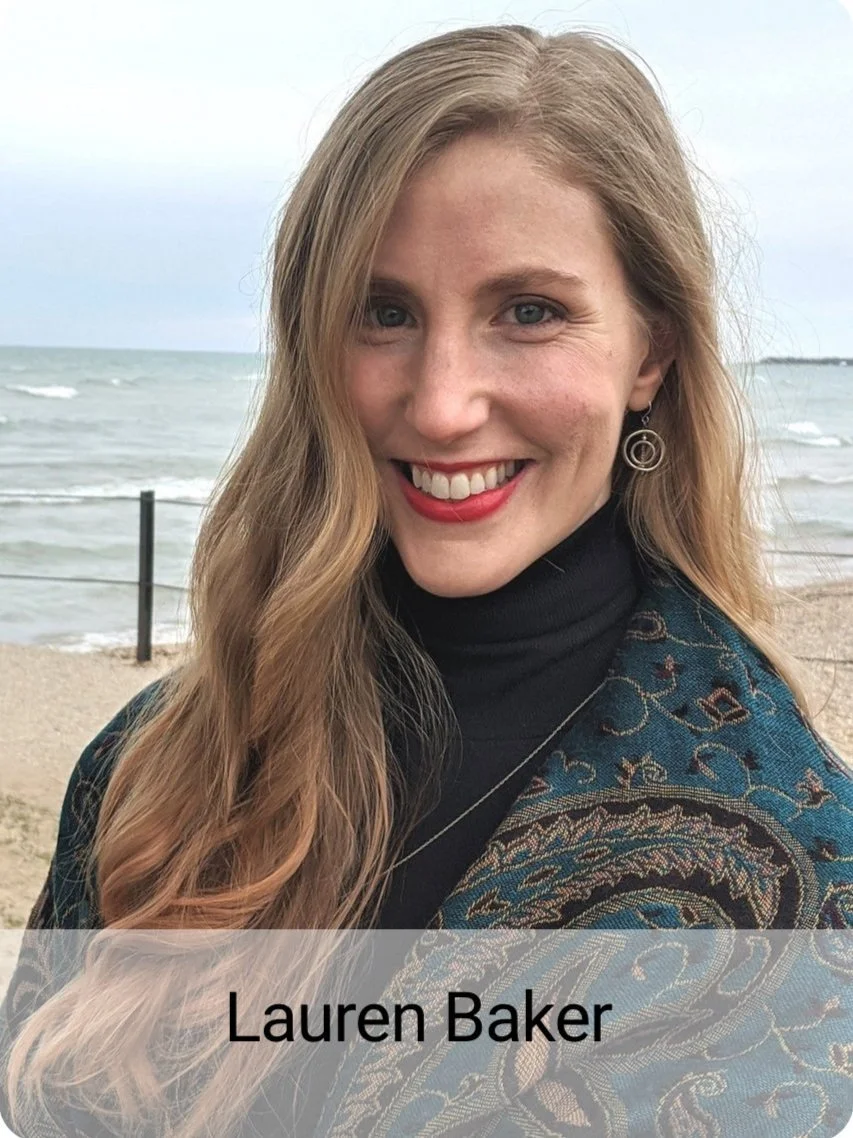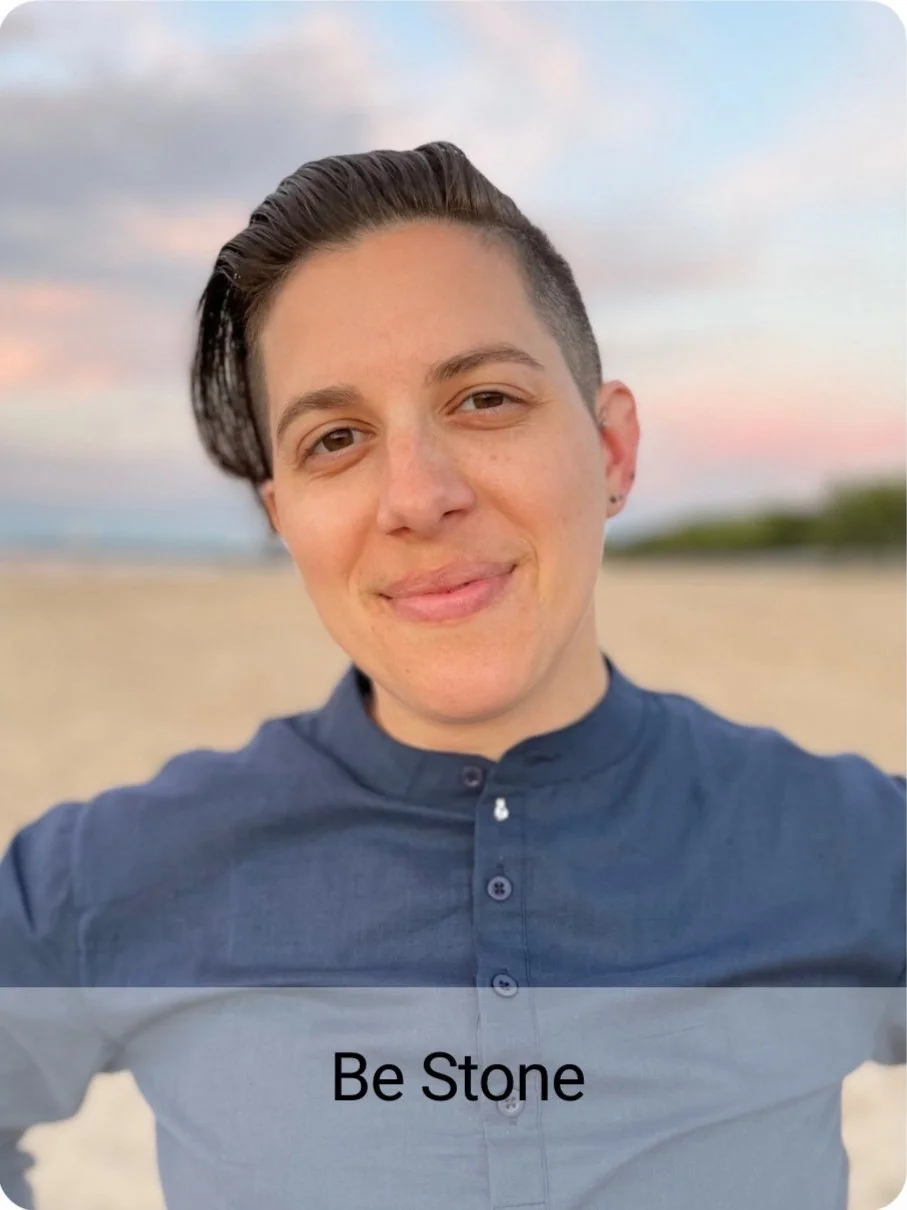2024-2025 Spotlight Scholars
The Spotlight Scholars programs bring together early career scholars who use or analyze interpretive methods in their work. Spotlight Scholars work with a more senior mentor during the academic year and present their work in the spring of their tenure. In 2024-2025, we are delighted to welcome three Spotlight Scholars: Ronay Bakan, Lauren Baker, and Be Stone.
Read more about them and their work below.
To read more about the Spotlight Scholars program, click here. Our event schedule is available here.
-
Ph.D. Candidate, Johns Hopkins University
Ronay Bakan (she/her) is a PhD candidate in the Department of Political Science at Johns Hopkins University, where she specializes in political violence, urban politics, race and ethnicity, and critical methodologies. Her research employs ethnographic methods to investigate the socio-spatial dimensions of everyday warfare, particularly focusing on racialized and ethnicized populations in the Middle East. Ronay earned her BA and MA degrees in Political Science and International Relations from Bogazici University in Turkey. In 2018-2019, she was a Fox Fellow at the MacMillan Center at Yale University.
Her book project, titled Counterinsurgent Urbanism: Weaponizing Land and Heritage in the Kurdish Region of Turkey, examines why and how states use urban development and heritage making as tools in counterinsurgency strategies. Grounding her theory in the civil war between the Turkish state and Kurdistan Workers’ Party (PKK), she argues that in addition to military tactics, counterinsurgent states employ legal practices and developmentalist strategies to destroy the environment of existing insurgencies while constructing the symbolic and material environment of future wars. She terms such processes “counterinsurgent urbanism.” This project contributes to debates on critical security studies, counterinsurgency, race and ethnicity, urban politics, and Middle Eastern politics by providing a framework for analyzing how warfare evolves in and reshapes urban environments of minoritized and racialized populations through the interaction of local, national, and international actors.
She uses urban ethnography, including participant observation, in-depth interviews, neighborhood mapping, and archival research to illustrate how ordinary, non-spectacular forms of violence operate in civil wars and counterinsurgencies. Her multi-year, multi-sited ethnography, including 11 months of intensive fieldwork in 2022-2023, focuses on local governance, city planning, and heritage-making in Diyarbakır, the largest Kurdish city in Northern Kurdistan/Southeast Turkey. She traces everyday similarities and differences in processes of dispossession, policing, and selective development by focusing on three main districts in the city: the old city of Suriçi, the crumbling urban quarter of Bağlar, and the gated community site of Kayapınar. This methodological approach incorporates new approaches to conceptualization, measurement, and observation when compared to previous scholarly works on war and counterinsurgency, which primarily concentrate on easily observable events like homicides.
Article-length pieces from this research have been published in Kurdish Studies and are currently under review at leading journals in the field. She is currently finalizing a methodological piece provisionally titled “Fieldwork as Carework: Building ‘Care-full Communion’ in Uncertain Times”, which argues for a cross-epistemological embrace of care practices as integral to knowledge production rather than peripheral to knowledge claims. Drawing on her first-hand experience volunteering in the aftermath of the February 6, 2023, twin earthquakes that hit Turkey and Syria, which occurred in the middle of her fieldwork, this piece presents her concept of “carework”—incorporating both the giving and receiving of care—to rethink the practice and ethics of research.
She has also published essays in Yale Global, Jadaliyya, the POMEPS Blog, and the International Society of Political Psychology Early Career Committee Newsletter on topics including war and peace, authoritarianism, colonialism, disaster management, and gender-based violence in the Middle East.
-
Ph.D. Candidate, Northwestern University
Lauren Baker (she/her) is a PhD candidate (ABD) in political science at Northwestern University. Her research investigates the politics of garbage. Her dissertation explores how authoritarian states seek to “sanitize” and depoliticize contentious issues like waste at sites of global environmental governance.
She has conducted research in Morocco, the United Kingdom, Egypt, and the United Arab Emirates, spending a total of fourteen weeks collecting data over six research trips. Before starting her PhD, Lauren worked as the assistant director for the Project on Middle East Political Science and as an associate editor for the Money Cage.
Lauren earned an MA in Middle Eastern Studies from The University of Texas at Austin and a BA in International Studies from Allegheny College. At Northwestern, she has taught as instructor of record with Chicago Field Studies and the Weinberg College of Arts and Sciences, was a Searle Center Graduate Teaching Fellow, and a 2021-2022 Buffett Global Impacts Fellow.
-
Assistant Professor, Rhodes College
Be Stone (they/them) is Assistant Professor of Politics and Law at Rhodes College. Their research and teaching interests are at the intersections of American political culture, public policy development, ordinary language analysis, and critical addiction studies. Stone’s work examines the interplay between the symbolic and the material in political discourse, considering how the cultural resonances of key terms influence public policy outcomes from a feminist and critical race perspective. Their dissertation received the 2024 Stephen E. Bronner Dissertation Award from the American Political Science Association’s Caucus for Critical Political Science.
Stone uses a theoretically informed interpretive approach to study public policymaking as a contest over ideas in the context of political culture. Their book manuscript, Addiction in U.S. Political Culture, uses ordinary language analysis to examine the concept of addiction as a keyword in the U.S. political lexicon that has been largely neglected by mainstream political science. Ordinary language analysis is a Pitkinian-inspired approach that Stone adapts to investigate how and why addiction is used by political actors in unconventional policy contexts––such as to characterize America’s relationship to fossil fuels or U.S. anti-poverty policy.
They argue that political actors consistently using the term addiction in a policy debate signals that the issue at hand is arousing long-standing anxieties in American political culture regarding subjection, dependence, and unfreedom. Stone shows that pundits, advocates, and politicians deploy the term in policy debates where they want to create the appearance of hegemonic American values being threatened, and to cast their policy solutions as shoring up those values by eradicating the alleged addiction. The term heightens the symbolic stakes of these policy debates, making their outcomes not just about the material interests involved, but about neutralizing a perceived threat to the masculinized, white-racialized dominant political culture.
Stone is also developing a second monograph, titled Who Is Responsible for an Addiction Epidemic? The Concept of Culpability in the Opioid and Tobacco Settlement Cases. In this project, they investigate how public conceptions of who can be held responsible when individual addictions reach epidemic proportions has shifted over the last thirty years. Their subjects are the opioid settlement cases––a collection of recent lawsuits seeking damages from pharmaceutical companies for their role in the opioid epidemic––and the tobacco settlement cases of the 1990s, in which tobacco-makers paid billions for misleading the public about the addictiveness of nicotine and the health effects of smoking.
In this project, Stone argues that the underlying stakes of these cases are competing conceptions of individual, collective, and mutual responsibility––potent themes in the American liberal-individualist political tradition. These cases are an underappreciated venue for examining how the public, in contemporary terms, is debating the relationship between social determinants and individual autonomy, how these popular beliefs inform political, legal, and social practices in the U.S., as well as how political entrepreneurs use responsibility-related terms to further their legal and policy agendas.
Stone earned their Ph.D. at the Graduate Center of the City University of New York, and has taught courses in American politics, public policy, and political theory at Baruch College and Brooklyn College, CUNY, and at Rhodes College. They can be reached at stoneb@rhodes.edu or on X at @BeStone_Phd. Their website is tinyurl.com/bestonephd.



